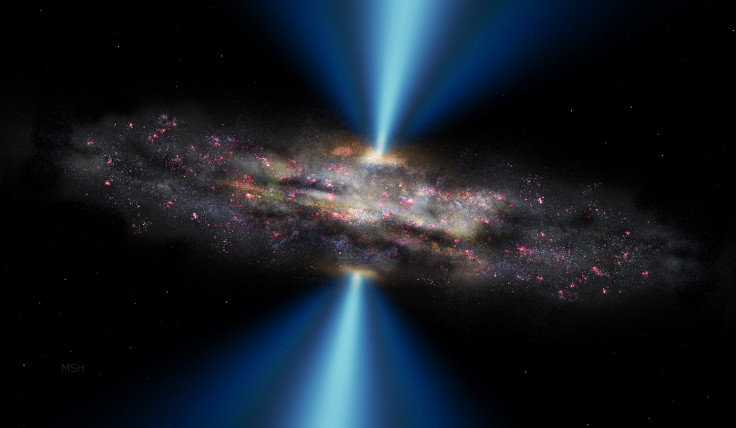How will the universe end? Top theories about the ultimate fate of the cosmos
The universe has basically sat down on the sofa, pulled up a blanket and is about to nod off

A recent study found the universe is slowly dying, with scientists from International Centre for Radio Astronomy Research in Western Australia finding that the energy produced in some parts of the universe is half of what it was two billion years ago.
Study author Simon Driver said: "The universe will decline from here on in, sliding gently into old age. The universe has basically sat down on the sofa, pulled up a blanket and is about to nod off for an eternal doze."
But when it does die, just how will the universe go? Here are the top theories about the ultimate fate of the universe.
Big Crunch
The Big Crunch is based on Einstein's Theory of General Relativity. It says the expansion of the universe (from the Big Bang) will not continue forever. Eventually, it will stop expanding and start collapsing into itself. When this happens, it will pull everything in the universe inside it turning into the biggest ever black hole. However, there are a number of problems with this theory, one of which being that the universe is expanding at an ever increasing rate.
Big Rip
This theory, which recently hit headlines across the globe, says that a type of phantom dark energy will get stronger over time. As the universe expands at an ever increasing rate, eventually it will not be able to withstand the speeds and will rip itself apart – individual atoms will disassemble themselves into radiation and unbound elementary particles. Recent calculations say this will happen in about 22 billion years.
Big Freeze
In the Big Freeze scenario, the universe will grow so big that the supply of gas will be too thin for stars to form. All existing stars will eventually burn out leaving only black holes behind. Eventually these too will evaporate as the universe gets ever colder, leaving nothing behind.
Big Bounce
The Big Bounce is a bit more optimistic in that it says the universe will never really end. Similar to the Big Crunch in terms of the universe eventually running out of steam and collapsing on itself, the Big Bounce says that this collapse would eventually cause another Big Bang – creating a cyclical effect of endless universes after a singularity is reached.
Heat Death
Heat Death takes place when the universe has reached a state of maximum entropy – all the available energy has moved to places with less energy and heat stops flowing. This equilibrium also happens with all other forms of energy. Because no more work can be extracted, the universe is effectively dead.
False vacuum and mini black holes
The false vacuum works on the idea that the universe is unstable – and that billions of years from now it will tip over and a bubble will appear a bit like an alternate universe. The idea was recently visited by a team of scientists that said if a mini black hole was inside one of these bubbles of true vacuum, the gravity of the black hole would shift the balance, causing the bubble to expand and consume the whole universe within just a fraction of a second. However, they also said if this was going to happen, it would have already.
© Copyright IBTimes 2025. All rights reserved.






















